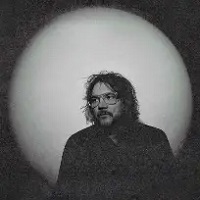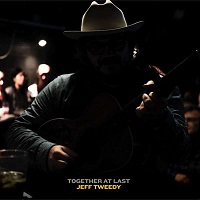Drei Teile eines Ganzen
Indie-Rock-Koryphäe Jeff Tweedy hat für seine Fans mit »Twilight Override« gleich drei neue Alben im Gepäck.
Die 30 Songs entstanden im Laufe der letzten Jahre zusammen mit Freunden und zwei von Tweedys Söhnen im eigenen Studio in Chicago. Dabei war es dem Wilco-Frontmann wichtig, dass jedes Album für sich genommen genossen werden kann. Gleichzeitig ergeben die drei Teile von »Twilight Override« ein musikalisches Triptychon, das eine gemeinsame Geschichte erzählt.
Tweedys fünftes Solowerk enthält eine umfangreiche Tracklist mit 30 neuen Songs, darunter die frühen Fan-Favoriten und Konzerthighlights »Feel Free«, »Enough« und »Lou Reed Was My Babysitter«.
Mit »Twilight Override« präsentiert Tweedy drei Alben, die für sich allein stehen, aber gemeinsam eine Geschichte aus Vergangenheit, Gegenwart und Zukunft erzählen. Das Album enthält Auftritte von Chicagoer Musikerkollegen und häufigen Kollaborateuren: Spencer Tweedy, Sammy Tweedy, James Elkington, Sima Cunningham, Macie Stewart und Liam Kazar. Chorgesang ist im gesamten Werk hervorgehoben und glänzt in Songs wie »One Tiny Flower«, »Cry Baby Cry« und »New Orleans«.
»Twilight Override« wurde in den letzten zwei Jahren aufgenommen und von Tweedy selbst in seinem Chicagoer Studio »The Loft« produziert. Tontechnik und Mixing übernahm Tom Schick. Mastering übernahm Stephen Marsh. Design von Lawrence Azerrad. Fotos von Shervin Lainez.
The troubling state of American life since the rise of the alt-right and Donald Trump's transformation into a polarizing political figure has become Jeff Tweedy's dominant theme since the mid-2010s, coloring his work from 2018's Warm onward. A cheery outlook has never been Tweedy's stock-in-trade, but the undertow of his writing has been a troubled response to a world going mad, and in the essay that accompanies his 2025 album, Twilight Override, he sums up the tenor of American life as "a bottomless basket of rock bottoms." So what to do? In Tweedy's case, the answer is to make music, lots of it, and Twilight Override is an epic-scale response to prevailing malaise. Twilight Override contains 30 songs spread over three vinyl LPs, and was recorded with a cast of players who've been part of his solo road band for a while: Sima Cunningham and Macie Stewart from the band Finom, Liam Kazar of Kids These Days, James Elkington of Brokeback and Eleventh Dream Day, and his sons Spencer Tweedy and Sammy Tweedy. While occasional bursts of electric skronk and languid electric jangle punctuate some of the songs, for the most part this music is dominated by acoustic instruments, and it's not just his biggest solo effort to date, it's the most fully formed. Compared to his previous solo releases, Twilight Override suggests Wilco's 1996 breakthrough effort Being There, where he consciously tore down the sonic frameworks he'd worked with since co-founding Uncle Tupelo. Twilight Override is not an exercise in musical reinvention like Being There, but it finds Tweedy and his collaborators embracing a fresh willingness to throw different ideas at the wall -- the duel between acoustic and distorted electric guitars in "New Orleans," the spiky report of "Lou Reed Was My Babysitter," and the washes of atonality in "Wedding Cake" as examples. As for the lyrics, Tweedy doesn't contribute any direct commentary on the events of American Life in 2025, opting instead to offer thoughtful introspection on his own philosophies, observations on his past and present, musings about the simple mysteries of living, and friendly advice -- seven whole minutes of the latter in "Feel Free," and when he suggests "Make a record with your friends," it's nice to know he practices what he preaches. Though Twilight Override covers a lot of ground in terms of both ideas and sheer bulk, it never sounds forced or as if Tweedy and his musicians are straining for effect. This music sounds natural and spontaneous, and even when the tracks are clearly layered with various elements, the feel is organic and meshes beautifully with the melodies. Twilight Override was created out of Tweedy's belief that "Creativity eats darkness," and while these songs rarely sound like they're brimming with joy, they act as an affirmation of life and hope even as they acknowledge the shadows, and it's his best and most rewarding solo album to date.
(by Mark Deming, All Music Guide)

 Plattentipp
Plattentipp 


